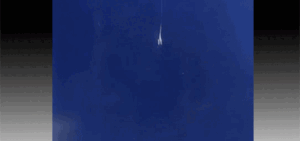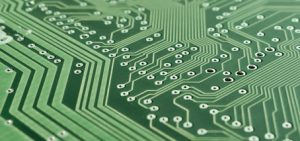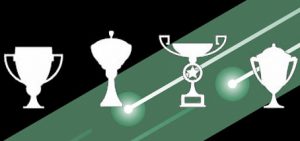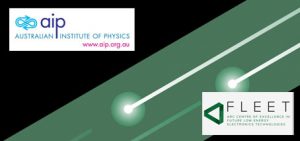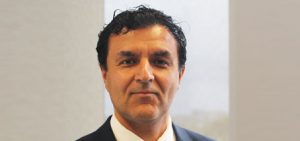FLEET News
In a landmark discovery, FLEET University of Wollongong (UOW) researchers have realised the non-contact manipulation of liquid metal. The metals can be controlled to move in any direction, and manipulated into unique, levitated shapes such as loops and squares by using a small voltage and a magnet. The liquid metal used is galinstan, an alloy of gallium, indium and tin, …
What FLEET content has caught the attention of the digital world in 2021? FLEET’s digital presence spans a handful of social media platforms, the FLEET research blog, and posts on external sites such as Phys.org, Eurekalert, Science Daily, Nanowerk, Materials Australia, New Electronics, Semiconductor Digest and AZO Materials. Top hits in 2021 included: • YouTube Wolfgang Ketterle FLEET talk on …
Solving complex problems, data analysis to aid decision-making, and outreach: from cold-atoms research to defence industry consultancy Hi former colleagues from FLEET! I’m Carlos Kuhn. At FLEET, I was a post-doctoral research fellow under the supervision of Prof. Chris Vale at the Centre for Quantum and Optical Science at Swinburne University of Technology, where we investigated non-equilibrium and topological phenomena …
Job hunting, working in industry, and staying focused on the path forward Hi FLEET, I’m Jesse Vaitkus. I was a PhD student under Prof. Jared H. Cole working on novel transport problems using the Non-Equilibrium Green’s Function (NEGF) method. After graduating I worked on similar problems for him until I left to begin my current job at HQS Quantum Simulations. …
Physicists at the University of Queensland have shed light upon how tiny whirlpools (vortices) get stuck to obstacles in superfluids. Superfluids are a quantum substance that can flow without viscosity and hence do not slow down due to friction. A second defining feature of superfluids is that they only support quantised rotation – the vortices can only spin with strength …
FLEET’s annual workshop is our big opportunity each year to gather together and share research outcomes and progress. FLEET2021 was a ‘hybrid’ affair – with talks and poster online and catch-ups in person, where possible – and was a welcome opportunity to celebrate survival of an difficult year, motivate each other with short research updates and highlights, and catch up …
Australian researchers have discovered that negative capacitance could lower the energy used in electronics and computing, which represents 8% of global electricity demand. The researchers at four universities within the ARC Centre of Excellence in Future Low-Energy Electronics Technologies (FLEET) applied negative capacitance to make topological transistors switch at lower voltage, potentially reducing energy losses by a factor of ten …
The 2021 Idea Factory challenged 36 early career researchers to write more effective grant applications, and learn to effectively communicate the value of their research to varied audiences. The workshop concentrated on developing researchers’ ability to pitch their research – and get funded, primarily: improving grant writing skills and confidence, customising grants for different funding bodies distilling key messages about …
Congratulations to FLEET Research Fellow Bao Yue Zhang, who received the prestigious 2021 RMIT Vice-Chancellor’s Prize for Research Excellence-HDR, recognised for outstanding research and contributions to novel sensing materials and applications in early cancer diagnosis. “Thanks to my supervisor- Jian Zhen Ou, my current & past mentors…… all my lovely team members, family, friends…..(Sorry I could not name you all) …
December’s edition of Nature Physics is dedicated to ultracold quantum technologies, including a review of spectroscopic probes of quantum gases by FLEET’s Chris Vale (Swinburne), with MIT’s Martin Zwierlein. Ultracold gases are a laboratory for precision, many-body physics – delivering a wealth of insights into collective quantum phenomena, with direct implications for nuclear and condensed-matter physics. Spectroscopic techniques can probe …
Generating topology from loss in hybrid light-matter particles Observation of new non-Hermitian topological invariant in exciton-polariton system Losing particles can lead to positive, robust effects. An international collaboration has demonstrated a novel topology arising from losses in hybrid light-matter particles, introducing a new avenue to induce the highly-prized effects inherent to conventional topological materials, which can potentially revolutionise electronics. Led …
There will be a feast of FLEET science in show at the Australian Institute of Physics Summer Meeting (this coming week, 6–9 December) at QUT in Brisbane, with parallel online delivery. The summer meeting will see plenary and keynote talks by FLEET’s Michael Fuhrer, Dimi Culcer and Kirrily Rule, with over 30 presentations by Centre members across six universities. FLEET …
FLEET Chief Investigator Prof Kourosh Kalantar-zadeh has been named in the top 1% by citations in his field (cross field) for the fourth year running. Read more. Congratulations also to FLEET AI Torben Daeneke, whose appointment to Associate Professor at RMIT has just been announced. And to UOW’s Zengji Yue who had been appointed an Associate Investigator within FLEET. FLEET AI Sumeet …
Surveying and student interviews confirms success of future computing unit in encouraging girls/other students in physics Over the last three years FLEET has helped put ninety Year 10 students through a ‘Future electronics’ unit, in partnership with John Monash Science School (JMSS). As well as covering semiconductors, Moore’s Law and computing, the course introduces quantum physics at an intuitive level …
FLEET Chief Investigator Prof Kourosh Kalantar-zadeh has been named in the top 1% by citations in his field (cross field) for the fourth year running. The Clarivate Analytics list identifies the most influential researchers by citations. The citation identifies influential researchers as determined by their peers around the globe – those who have consistently won recognition in the form of …

